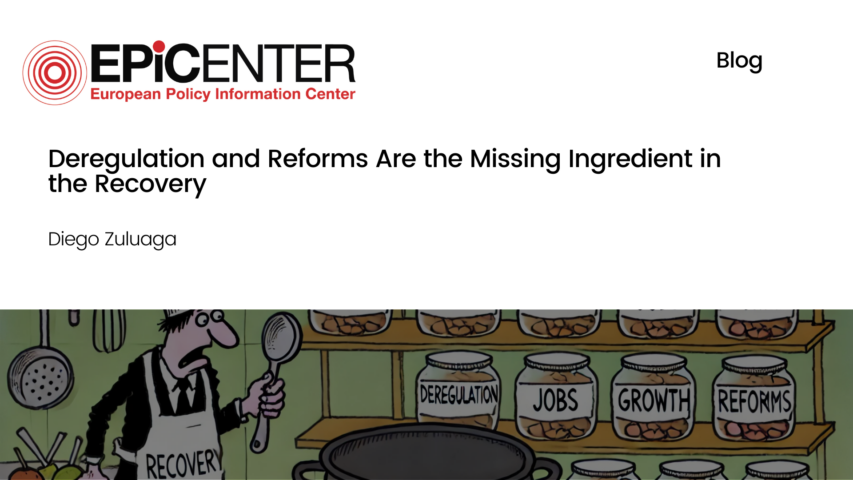Deregulation and Reforms Are the Missing Ingredient in the Recovery

Deregulation and Reforms Are the Missing Ingredient in the Recovery
Diego Zuluaga // 11.11.2015
Writing in the Financial Times (“In the long shadow of the Great Recession,” 10 November), Martin Wolf meditates on the possible causes of substandard growth performance by many European economies in the aftermath of the 2008 financial crisis. Drawing on a selection of recent studies, Wolf concludes that hysteresis – defined as the impact of past experience on future performance, via for instance prolonged unemployment, low investment and contractions in lending – might explain the poor productivity and growth performance post-recession. And given the long-term damage caused by deep crises like the one we have just been through,
“This is why it is so important that we avoid huge crises and respond strongly to any that occur, to minimise their economic impact. Otherwise, the bad cycle might permanently damage the trend.
“[…] It may be hard to respond to crises but it is vital to make them both small and rare.”
Wolf goes on to recommend the usual Keynesian remedy to sluggish growth, namely public expenditure to stimulate demand. Coupled with tightening financial regulation, he believes this would have avoided the worst consequences of the Great Recession.
The notion that even wider deficits in countries such as Spain and the UK would have strengthened rather than compromised their position in the depths of the downturn is itself questionable. Ten per cent budget deficits cannot be sustained for long, and to boost expenditures even further would hardly have been welcomed by sovereign debt markets.
However, I think it is more important to focus on some fundamental factors missing in Wolf’s narrative. The first is the absence of market reforms in many of the countries that he is talking about, and their performance relative to those European countries with more flexible labour and product markets. Invariably, those with more inflexible labour regulations and more onerous employment taxation have struggled to recover, whilst more deregulated economies in the Baltics, in Scandinavia and in the UK in general had shorter crises and more robust recoveries. A lack of decisive deregulation of labour markets and business has hampered investment and hiring, helping to drive hysteresis.
To this must be added the heavy-handed regulatory doubling-down on the financial sector, which increasingly is being shown to constrain lending and lead to greater concentration – and thus risk accumulations which could well deepen any future crisis. And, of course, there was the uncertainty of the Eurozone crisis after key Stability and Growth Pact rules, as well as the no-bailout clause, were breached.
There are, then, important supply-side considerations that offer an alternative diagnosis of the causes behind Europe’s subdued recovery. Rigid and protected labour and product markets, over-regulation of credit and capital markets without any beneficial effects on systemic risk, and a continued unwillingness to stand behind the founding principles of the single currency all make a robust change of trajectory more difficult and unlikely.
One last thought: I agree with Wolf that we should aim for future crises to be small and for them not to affect enormous segments of the financial sector – this is where decentralisation and deregulation (counterintuitive as they may be) would help. But I am not so sure that we could make crises rare. The economy, after all, is driven by the gazillions of decisions made by individuals on the basis of incomplete information, uncertainty and many external factors outside of anybody’s control. In that context, mistakes will be made and it is well and proper that there follows an adjustment.
However, so long as the downward adjustments are comparably small and short-lived, and are followed by strong recoveries, we should avoid hysteresis and have less reason to be worried about a permanent impact on our productive capacity.
EPICENTER publications and contributions from our member think tanks are designed to promote the discussion of economic issues and the role of markets in solving economic and social problems. As with all EPICENTER publications, the views expressed here are those of the author and not EPICENTER or its member think tanks (which have no corporate view).



